

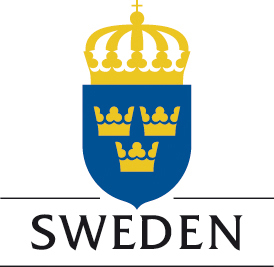
Issue 10, June 2017
About the newsletter
Why the Gender Equity Newsletter?
This newsletter aims to connect gender actors and practitioners in Lebanon through the exchange expertise, in an attempt to create a space for better collaboration, networking, and equal access to knowledge, research, and information. Each issue will cover the work of actors, their activities, and projects, in addition to recommending relevant resources and tools, as well as information and statistics relevant to gender work in Lebanon.
The gender equity newsletter is a part of the Gender Collaborative Information and Knowledge Network- a project by Lebanon Support in partnership with Diakonia
The Gender Collaborative Information and Knowledge Network is an online collaborative platform. It is part of Lebanon Support’sCivil Society Knowledge Centre (CSKC) and brings together civil society organizations, researchers, practitioners, and experts to enhance local and national capacities, improve access to knowledge and its development, and provide evidence-based research, information, and literature on gender issues and concerns.
1. Featured content on the Gender Equity Network
Women's Achievements in Lebanon A Historical Overview of Women’s Achievements in Lebanon
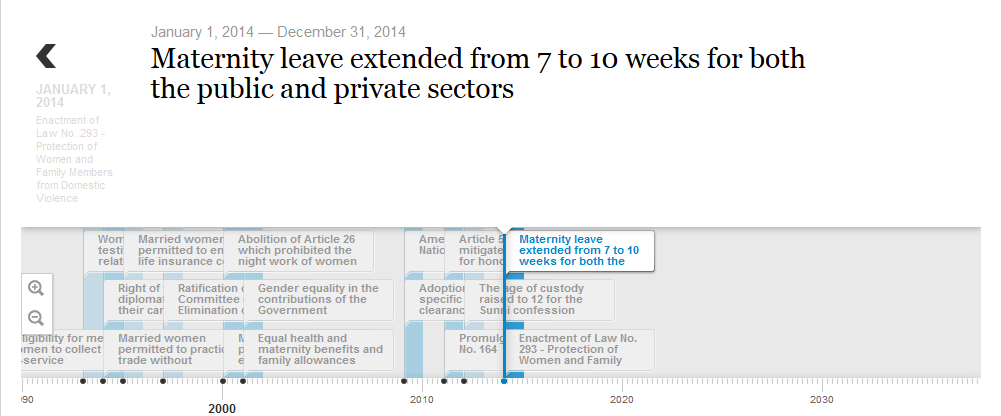
The new interactive timeline on our Gender Equity Network, developed in partnership with the Lebanese Women Democratic Gathering - التجمع النسائي الديمقراطي اللبناني (RDFL), lists women's achievements in Lebanon starting from 1953 with the right to vote and to be elected until more recently in 2014 with the enactment of the law protecting women from family violence, and the extension of the maternity leave.
Explore our timeline here.
Women's Movements in Lebanon
A historical overview of feminist and women’s movements in Lebanon
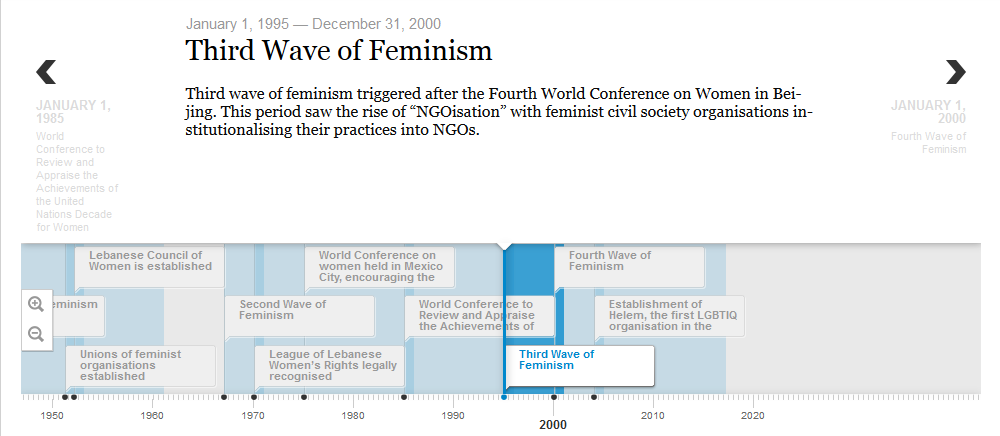
The interactive timeline of women's movements in Lebanon retraces mobilisations relevant to gender since the 1920s. Women’s mobilisation in Lebanon dates back to the 1920s when the Women’s Union was first established in Lebanon and Syria, focusing on cultural and social issues. Since Lebanon’s independence in 1943, four waves of feminism have emerged, each with different demands, actors, and political discourses, though all aspiring towards women’s rights.
Explore our timeline here.
« Hors du Hezb, point de salut ». Militer au féminin au sein du Hezbollah libanais.

This article tells the story of women who live in the southern suburb of Beirut and who, at some point in their lives, have decided to be committed in Hezbollah. It analyses the plurality of motivations, life courses and types of commitments while restoring the symbolic and almost liturgical system which determines and maintains the political mobilisation for this party.
Adopting a socio-historical approach, this article grasps this political phenomenon "from below" through its female activists, women, and mothers.
To that end, the first part analyses the modalities of commitment to Hezbollah in the case of women. The second part explores the subjective dimension of this commitment. Here the concern is to see how this commitment is lived in everyday life and the sense that these women give to the party and to their commitment. This contribution is based on interviews with female Hezbollah militants since 2006 in the southern suburb of Beirut, as well as on observations made in this suburb during the commemorations, celebrations and lately funerals of party members.
The article is available in French on the Gender Equity Network, read it here.
It is also available in English and Arabic in the 2nd issue of the Civil Society Review, a preview of which is available here.
De la Syrie au Liban : trajectoires migratoires et militantes de trois femmes palestiniennes
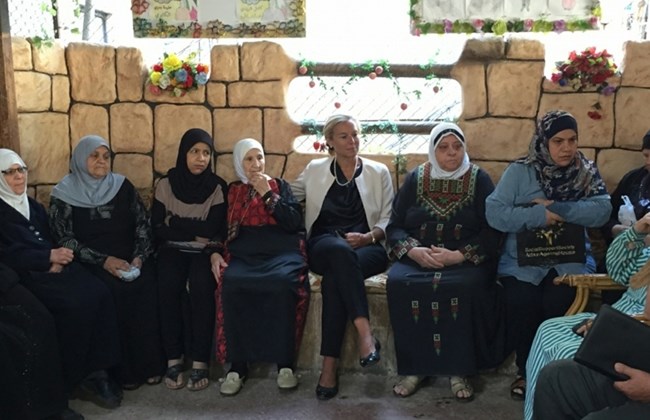
This article retraces the migratory and militant trajectory of three Palestinian women from Syria who fled to become refugees in Lebanon due to the current conflict. Apart from reconstructing the migration stages and the settlement in Lebanon, this article examines more specifically the heterogeneous effects of the forced displacement on the forms of activism undertaken by these women who, before leaving Syria, were involved to varying extents in fields like humanitarian relief and information. By examining these women’s trajectories, this article would also like to understand whether "gender" constitutes or not a constraint to the engagement of these refugee women.
The article is available in French on the Gender Equity Network, read it here.
It is also available in English and Arabic in the 2nd issue of the Civil Society Review, a preview of which is available here.
Mapping of Migrant Domestic Workers' Deaths

The map of Migrant Domestic Workers’ (MDW) cases of death documents alleged “suicides” of MDW, which have been a recurring issue in recent years. This map visualises the high frequency and distribution of these cases, and collects information about the reported stories. It aims to highlight the linkages between the kafala (sponsorship) system and the high rates of abuse and deaths of MDW. This mapping has been developed as part of an active collaboration between Lebanon Support and KAFA (enough) Violence & Exploitation, and is within the data centre of the Gender Equity Network.
Explore the map here.
Migrant Domestic Workers Testimonies
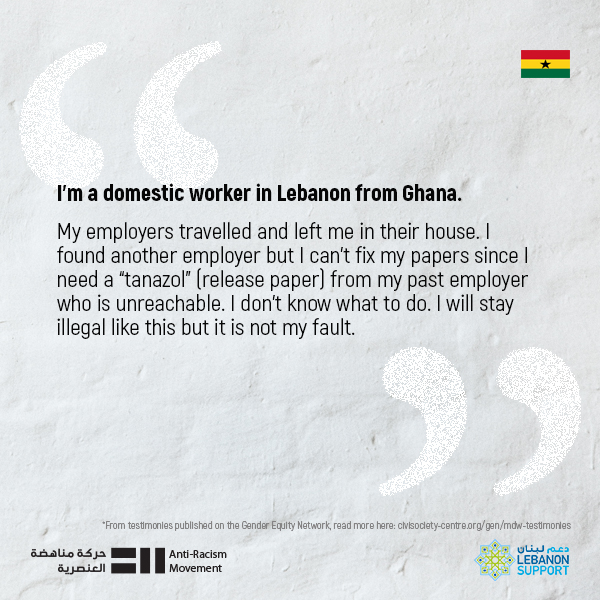
These are some of the first hand stories, collected by the Anti-Racism Movement and its Migrant Community Centre (MCC) over the past two years. These testimonies highlight the personal experiences and day-to-day violence and discrimination faced by migrant domestic workers in Lebanon.
Explore the tool here.
2. Calls and Funding Opportunities
Consultant Mid Term Evaluation for Project " Enhanced Socioeconomic Status of Women in South Lebanon.
Deadline: 20/6/17
The Lebanon Family Planning Association and RC are seeking a consultant/ Consulting firm to conduct a mid term evaluation of the project "Enhanced Socioeconomic Status of Women in South Lebanon" under AFKAR III project funded by the European Union and managed by the Office of the Minister of State for Administrative Reform. Read more
3. Newest registered gender organisations on Daleel Madani
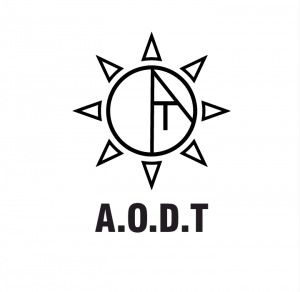
Amalona Organisation for Development and Training

National Commission for Lebanese Women

Ninurta
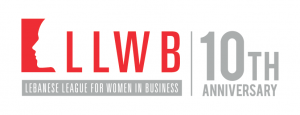
Lebanese League for Women in Business
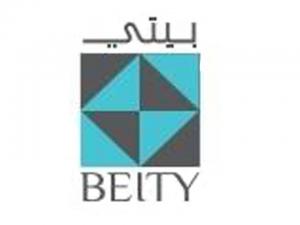
Beity Association
*You can view other organisations and civil society actors on the Civil Society Directory of Daleel Madani
If your organisation would like to register on Daleel Madani, please fill in this form
4. Events Lebanon Support participated in
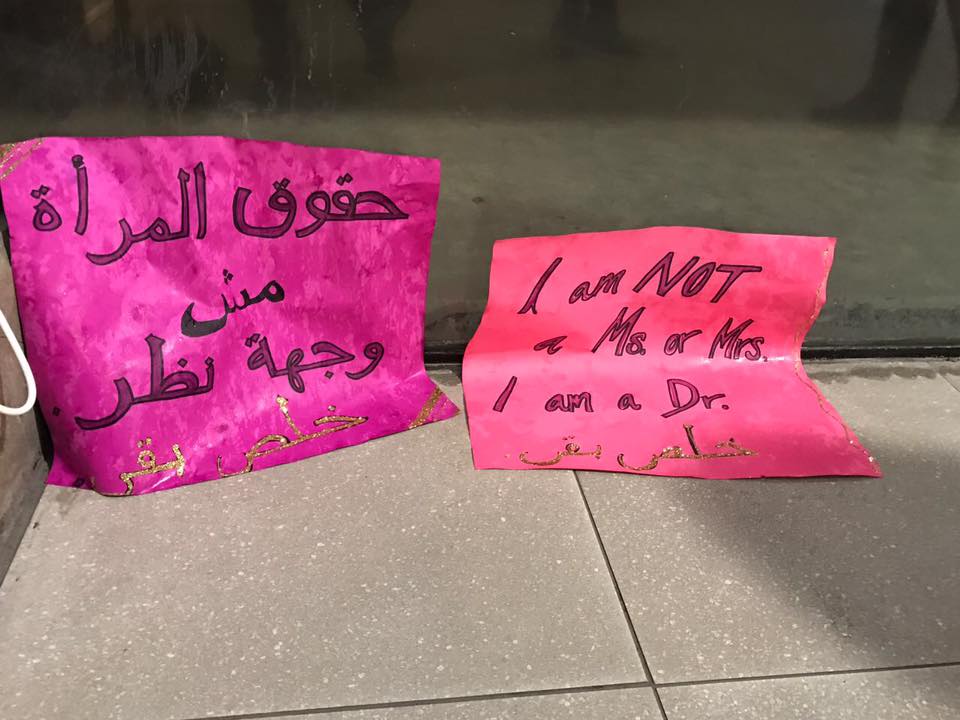
Lebanon Support's team participated in the Women's March organised on the occasion of International Women’s Day on the 11th of March 2017, as to show full solidarity with all women in Lebanon.
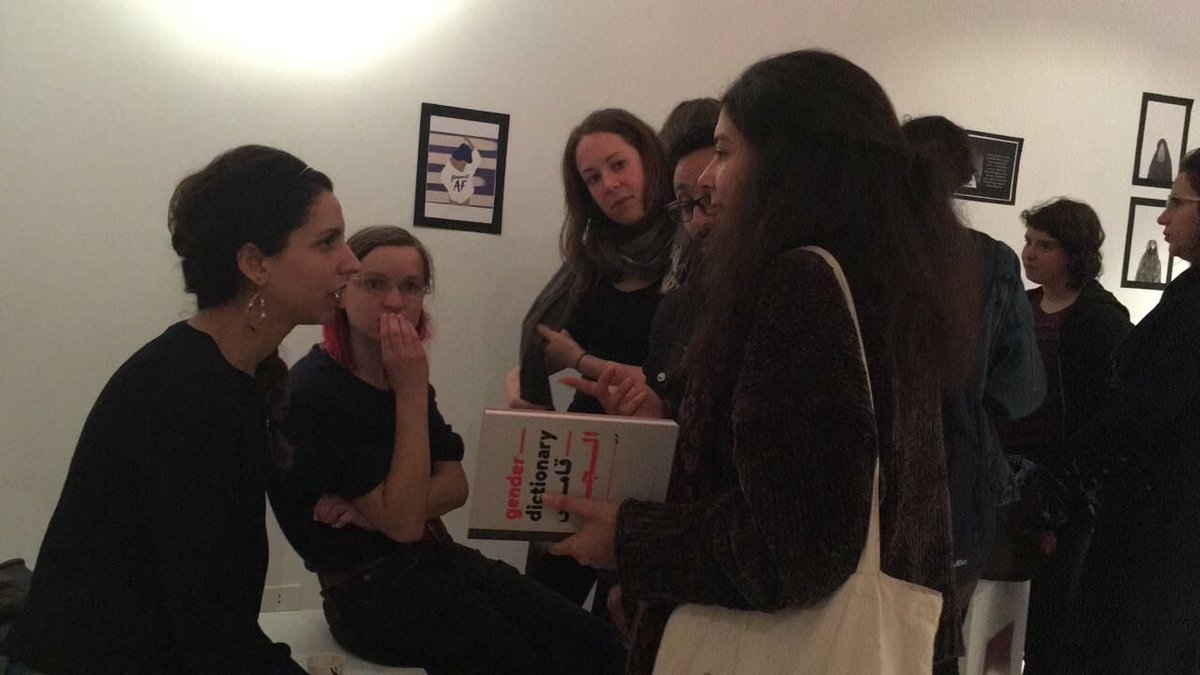
Lebanon Support participated on the 7th of March in the “Living Library” event organised at the Institute for Women's Studies in the Arab World at Lebanese American University (IWSAW), as part of International Women’s Day, and talked about gender and language, and the bilingual Gender Dictionary with students and participants.


Lebanon Support participated on the 24 and 25 of May in the OFF the Ground hackathon, that was organised within Beirut Design Week 2017. We were teamed up with a group of creatives and designers who worked on the Gender Equity Network and proposed solutions to increase its reach, and proposed a series of events for the GEN.
5. FOCUS ON
Civil Society Review issue 2 - Lebanese, refugee, and migrant women in Lebanon: From sociopolitical marginality to turnaround strategies

Lebanon Support has published at the end of 2016 the 2nd issue of its Civil Society Review, focusing on Lebanese, Refugee, and Migrant Women in Lebanon: From Sociopolitical Marginality to Turnaround Strategies.
While women’s issues and rights have been at the forefront of public and civil society debate, academic, and activist publications, women’s inequalities and the discrimination women face in Lebanon have been notably undermined, whether as citizens, refugees, or migrants. However, if the publicising of the “issue of women in Lebanon” has prompted the production of more “gender-related” information and knowledge, it has oftentimes adopted the rhetoric of denunciation and victimisation. Hence, there is a scarcity of in-depth and sectoral studies on the logics of exclusion and discrimination in comparison to the number of studies adopting holistic approaches to the conditions and status of women in Lebanon.
This issue of the Civil Society Review aims to bridge this gap by addressing the lack of empirical data and gender-based analyses on the experiences of women in Lebanon, including refugees, workers, and migrants.
View the preview of this issue here.


In this regards, Lebanon Support organised on the 19th of April, at its new office, a talk to discuss this issue of the Civil Society Review.
The talk discussed itineraries and stories of agency, and provided analysis and insights into the logics of exclusion and discrimination in the local social fabric, with the interventions based on the papers published within this issue.
Read the summary of the event here.
6. Gender news
• From Lebanon
Crepaway released a new ad to celebrate them turning 33 years, along with their famous tagline: #ComeAsYouAre. The ad is exactly what you’d expect from the phrase “Come As You Are,” except it’s taken to a whole other level with some Lebanese taboo-breaking as Crepaway features a same-sex couple for the first time ever in an ad made for a Lebanese company. (Read more here)
A group of non-governmental organisations participated from the 14th to the 21st of May 2017 in the event, and in the International Day Against Homophobia and Transphobia (IDAHOT), known as “Beirut Pride” condemning the prevalent hateful and violent discourse. This activity was faced with threats issued by the League of Muslim Scholars in Lebanon on May 13, 2017 which led to the cancellation of an activity organised by Proud Lebanon and another organised by Helem. (Read morehere).
The Administration and Justice Committee of the Lebanese Parliament stated that it had decided to scrap Article 522 of the Lebanese Penal Code. This decision, announced on December 7 2016, comes as the result of the campaign launched and organised by ABAAD. As part of the campaigning activities, ABAAD staff wore white dresses stained with blood and wrapped bandages around their arms and hands before the seat of government calling for the abolishment of this articled of the Code which allows rapists to avoid punishment if they marry their victims. (Read morehere).
An 81-year-old who set up an all-woman rubbish collection team in her village in Lebanon now has a stream of visitors asking how she did it. For nine months in 2015 and 2016 rubbish piled up on the streets of the capital, Beirut, and even now a lack of landfill sites means some of the city's waste is being thrown in the sea. Zeinab Mokalled has shown that when government fails, do-it-yourself local initiatives can work. (Read more here)
• Around the world
Fans took to social media to voice their frustration as Jordanian parliamentarians demanded Minister of Interior Ghaleb Zuabi to issue an urgent decision to cancel a concert “promoting homosexuality”. Opposition Member of Parliament, Saddah Habashneh had pledged to prevent the concert from happening on June 27 “by force to protect the Jordanian society and maintain its moralities and traditions derived from the teachings of Islam if the Ministry of Interior fails to cancel and ban the concert”. Also, the head of labor parliamentary committee, MP Khaled Fanatseh, condemned granting permission to “Mashrou’ Leila” to hold a concert calling implicitly for “moral disintegration in the Jordanian society, and targeting youth”. (Read morehere).
Malaysian health authorities are holding a contest on how to "prevent" homosexuality and transgenderism, drawing criticism from campaigners that it was fanning hatred and violence towards LGBT people. Activists say intolerance of LGBT people has spiked in recent years in Malaysia, a multi-ethnic majority Muslim Southeast Asian country. In the latest controversy, the health ministry's contest invites participants to submit video clips for categories including one called "gender identity disorder", according to details on the ministry's website. (Read more here)
French President François Hollande issued on Wednesday December 28, a complete pardon to a woman convicted of murdering her husband following decades of domestic abuse. Granting such pardon is a rarely used presidential prerogative. Ms Sauvage was sentenced to 10 years after shooting her husband in 2012 following decades of abuse. Her three daughters demanded a presidential pardon and received massive public support as more than 380,000 people signed a petition published on different websites. Mr. Hollande had issued a partial pardon at the end of January before granting complete pardon. (Read morehere).





















